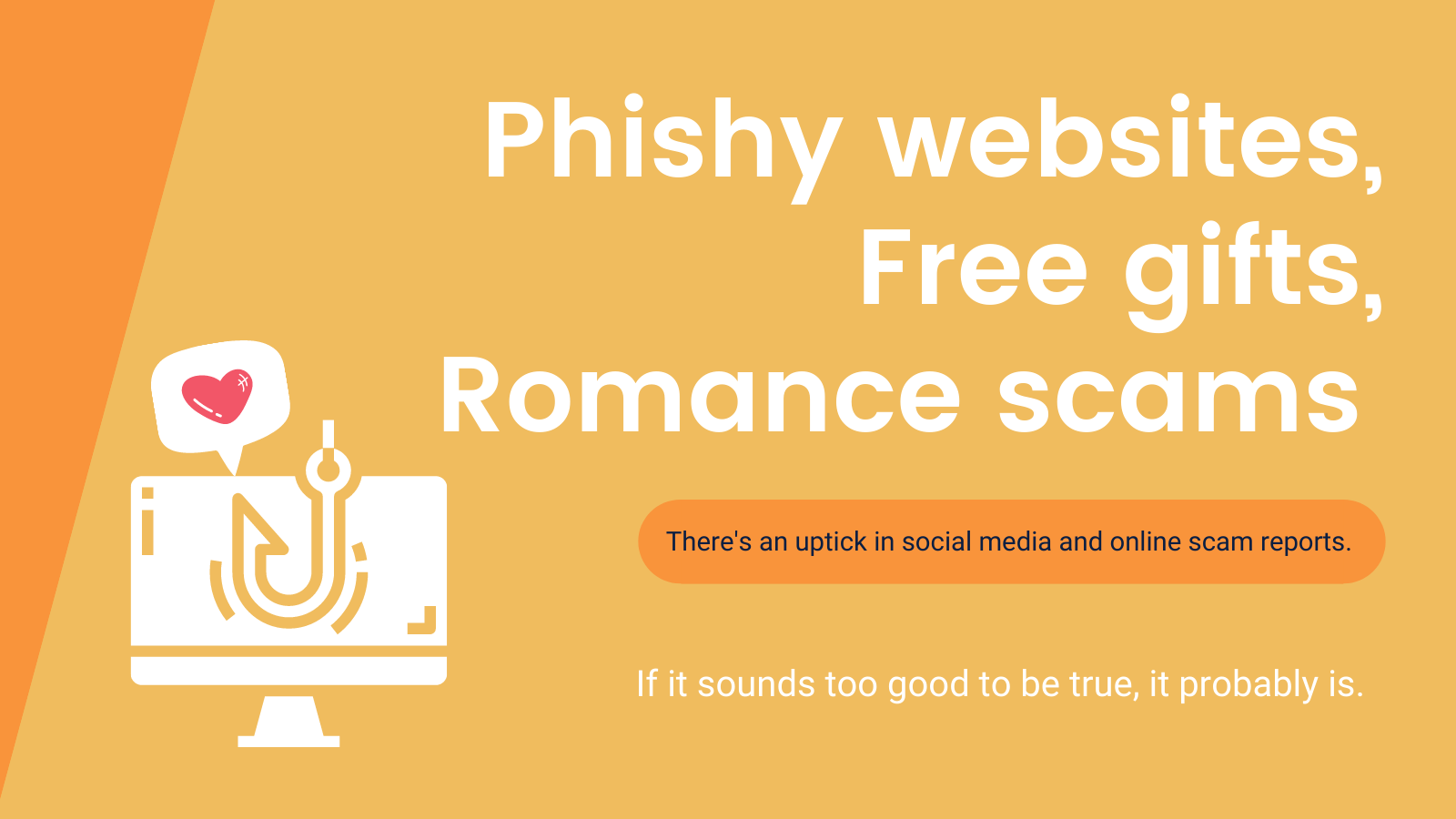By MoneyWise Staff
Wednesday, October 28, 2020

4 weeks until Thanksgiving, and turkey is not the only thing that comes to mind. As we approach the holiday season, gift giving and shopping is likely to look a little different this year. Rumors have spread that Black Friday shopping will be mostly online. While this may help consumers scout out the best deals, scammers prey on internet sales.
A recent post by the Federal Trade Commission (FTC) states that scammers are hiding out on social media, using ads and offers to market their scams. The FTC also states that in the first six months of 2020, consumers reported losing a record high of almost $117 million to scams that started on social media. The largest amount of reports were about online sellers that didn’t deliver the goods. More than a quarter of all scams reported in the first half of 2020 started on social media. About half of all romance scams reported since 2019, started on social media, usually on Facebook or Instagram. The FTC also received reports about spammy social media messages that pretended to offer grants and other financial relief because of the pandemic — but were just scammers trying to get money, personal information or both.
Scammers can hide behind phony profiles on social media. They can try to earn your trust or target you with ads tailored to your interests. But you can out smart them. Here are a few tactics to look out for and strategies to help you avoid falling victim to a fraudster’s ploy.

Phishy websites – With increased marketing emails during the holiday season, scammers are responsible for some of our inbox overload. They send out illegitimate emails made to look like the real ones that retailers produce. These replicated emails could contain malicious links built by scammers to gather your credit card information or ruin your machine by installing a virus. To check links for legitimacy, hover over the link in an email or on social media to see where the link directs you. Check that the URL includes https: identifying that it is a secure page and be sure to avoid purchasing items on a site you have never heard of. Review emails and ads for typos and other mistakes that could indicate it’s inauthentic. When in doubt, your safest route is to directly search a website by typing in the web address yourself via a new browser window.
Free gifts & Ridiculously low-price products - Like emails, fraudsters also target consumers through social media ads. Scammers get your attention by listing products at an unrealistically low price. A product valued at $100 being sold for $10 and free shipping is likely a scam. These products often are delayed or never ship, and there’s no customer service communication to be found. Be cautious of social media promotions, if a deal sounds too good to be true, it probably is.
Fake messages about financial relief – If you get a direct message from a friend about financial aid or relief, call or communicate with the friend outside of social media. Confirm the message was sent by your friend. Scammers can take over an account to try to earn your trust and separate you from your hard-earned money.
Romance scams – There is a post on our blog from earlier this year which provides great insight to romance scams. Social media has made meeting new people so much easier. Don’t be quick to get wrapped up in emotions or too trusting of an online relationship. Especially during the pandemic while a lot of human interaction is based online, beware of a new friend wanting to know personal information or even asking for money.
Purchase protection – While a credit card cannot protect you from all scams, most credit cards provide some type of purchase protection. If you buy online and do not receive the good you purchased, you may ask your credit card issuer for assistance in getting your money back. Purchase protection isn’t normally as reliable when purchasing with a debit card. So, it can be beneficial to make online purchases with a credit card and select a credit card with the best purchase protection. If you do use a credit card, be sure to track your purchases and monitor your credit.
The internet and social media can help us all stay connected during the pandemic. But it’s also where scammers lurk for easy victims. While communicating with friends or shopping online be sure to stay alert for spam. Shop smart, verify websites, and remember if it sounds too good to be true it probably is.
Blog topics: Fraud Prevention, Archive
The MoneyWise Matters blog has a wealth of information about managing money and avoiding fraud. You can look through the complete archive here.
